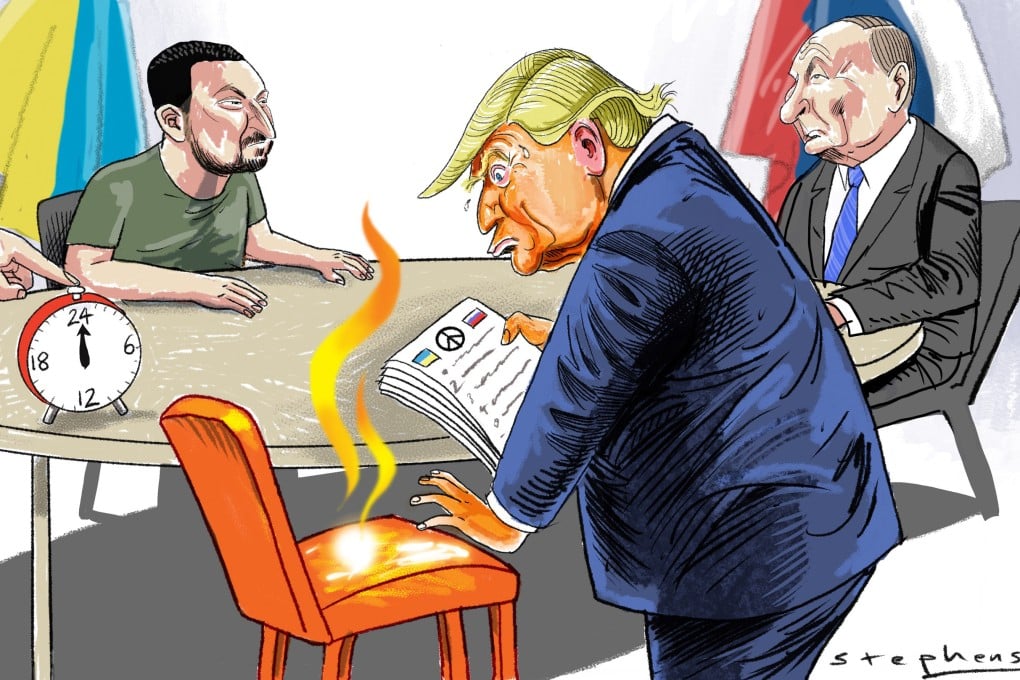Political promises are easy to make and hard to keep. US president-elect Donald Trump once said that if he won a second term he would end the Ukraine war
in a day. So far, Ukraine and Russia disagree: even with the possibility of the incoming administration halting US weapons supply to Kyiv or its dangling of sanctions relief for Moscow, neither side looks ready for a ceasefire.
A negotiated settlement is even farther over the horizon. And Europe is doubling down on support for Ukrainian President Volodymyr Zelensky, realising accurately its collective defence is directly threatened by Russian President Vladimir Putin’s land grab and mass murder of civilians.
There is no reason to believe Putin will stop his aggression, as the annexations of
Crimea and
Donbas have shown. That poses an existential risk to democratic Europe, one that Nato, the transatlantic security alliance, cannot leave unaddressed.
Wars generally cease when there is either a definitive military win or both sides are exhausted by violence. Until that threshold of maximum pain is breached, one side or the other will continue the fight, using a temporary truce to regroup, re-arm and redeploy. At the bottom of that pit of collective destruction lies the opening for a negotiated settlement.
Neither side has fallen that low. It is likely that Russia calculates that with the addition of North Korean
troops and weapons, it can sustain the fighting for some time. The rouble
may be collapsing against the US dollar, but Pyongyang is not getting paid in dollars. As cold weather grips the region, Russia’s sanctions-busting oil sales will continue to earn Moscow the much-needed hard currency to keep the war effort afloat.
Political uncertainty in Europe, including potential changes in the
German and
French leadership, gives Russia even more reason to keep its war machine running. Troops are holding and have made gains in an arc of control that includes nearly the entire eastern flank of Ukraine, stretching from Crimea through Kherson and Zaporizhzhia, Donbas and Luhansk.


